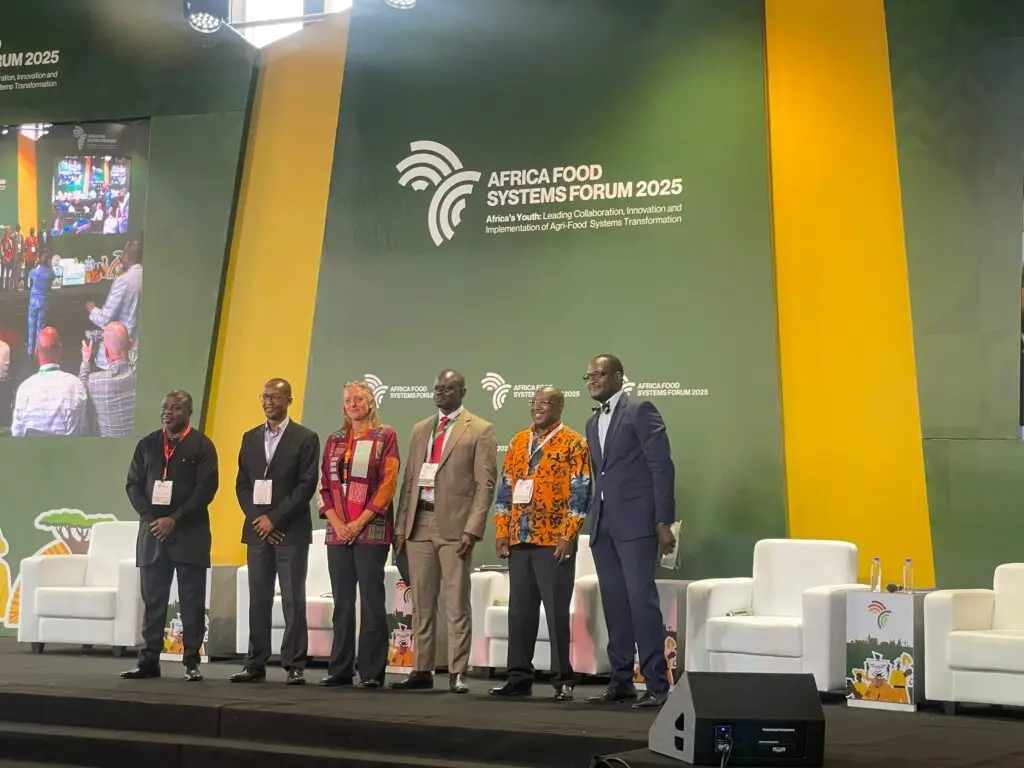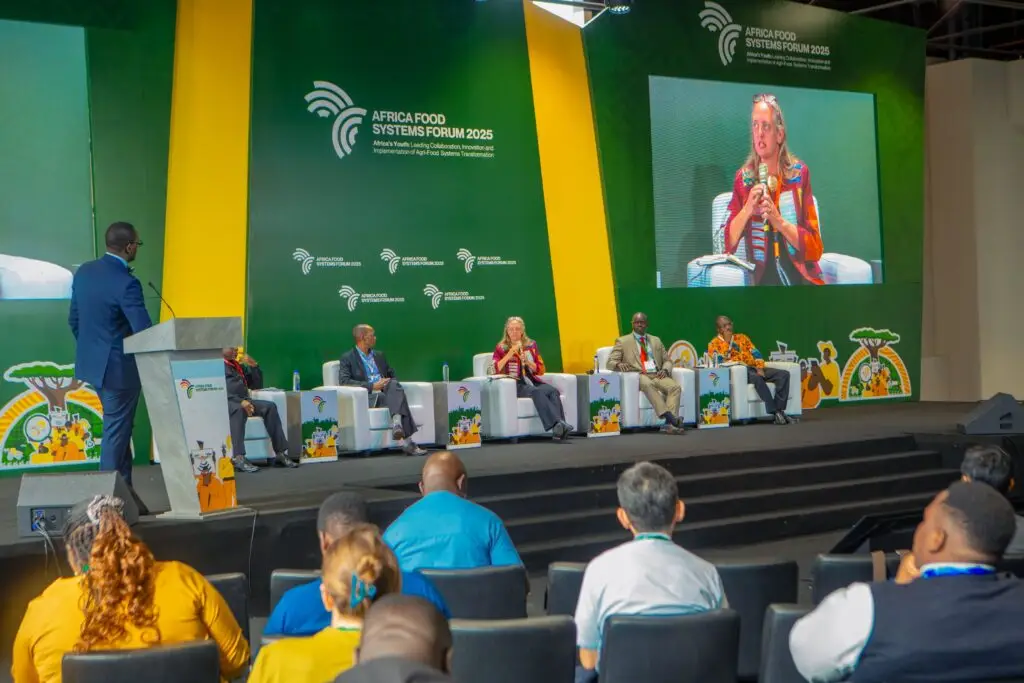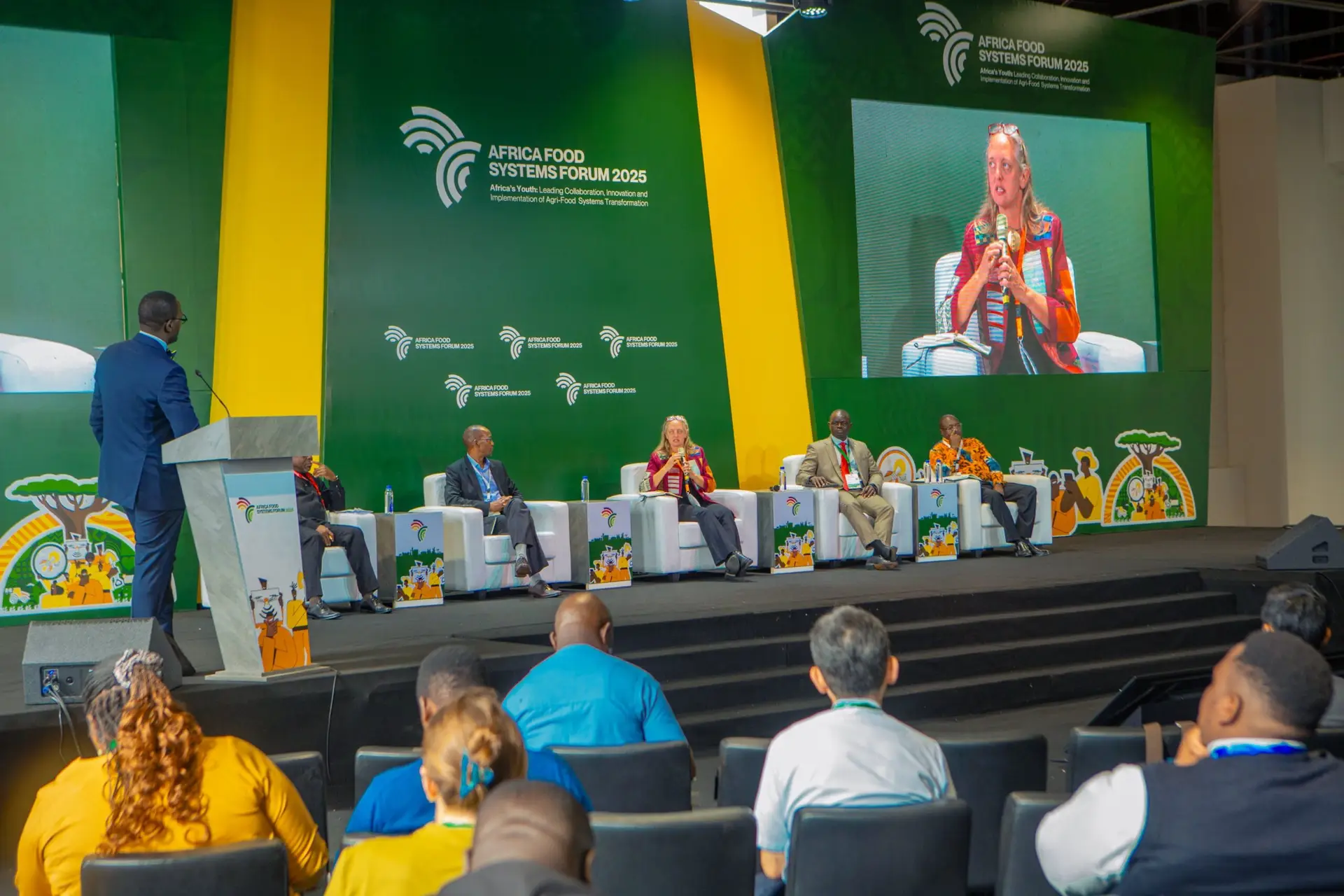Can Africa become more self-sufficient by trading more with itself? What will it take to turn ambitious trade policies into food on people’s plates and income in their pockets? And how can young entrepreneurs benefit more from regional markets that too often remain beyond their reach? These questions were at the centre of discussions in Dakar, Senegal, on 2 Sep. 2025, during the Africa Food Systems Forum on “The AfCFTA Agri-Trade Action Plan: Unlocking Inclusive Agri-Food Trade” panel, organised by the African Continental Free Trade Area (AfCFTA) Secretariat and AGRA.
Under the spotlight was the AfCFTA Agri-Trade Action Plan, which identifies seven high-potential value chains, namely, rice, fish, palm oil, fruits, vegetables, meat and maize that hold strong potential for jobs creation, food security and regional integration. The plan sets out how to move them from policy ambition to practical market access. The panellists noted that as Africa’s food systems evolve with intra-African trade rising, success will depend on how quickly countries can eliminate non-tariff, as well as sanitary and phytosanitary barriers, build sustainable and resilient regional value chains and accelerate agro-industrial transformation.

TradeMark Africa (TMA)’s Director of Strategy and Partnerships, Anthe Vrijlandt, highlighted three levers that could enable quick wins: digitalising SPS and customs procedures to cut delays and boost transparency; catalysing investment into youth-led enterprises, especially in high value commodities and sectors and ensuring women and young people derive optimal value as envisioned in initiatives such as the TMA-AfCFTA and Mastercard Foundation‘s Women and Youth Economic Empowerment in Fisheries programme. She also outlined how TMA works with governments, regional economic communities (RECs), donors and the private sector to eliminate non-tariff barriers (NTBs) and streamline policies and trade facilitation processes.
The panellists also included Komla Prosper Bissi, AfCFTA Private Sector Unit (PSU) Agriculture Lead; Gerald Makau Masila, CEO Eastern Africa Grain Council; Watipaso Mkandawire, Regional Food Trade Adviser at Foreign, Commonwealth and Development Office; Baboucarr Manneh, Director General, Africa Rice Center and CGIAR Regional Director, West and Central Africa. They stressed the need to create an enabling environment by progressively dismantling trade barriers and tackling SPS challenges to accelerate regional value chain development and drive the industrialisation of food production and distribution.

Discussions also underscored the role of corridor and infrastructure investments in attracting private capital. From feasibility studies to Build-Operate-Transfer (BOT) models, the tools exist, but they require policy alignment, risk-sharing frameworks and measurable results.
West Africa, where this year’s forum took place, was cited as a region that offers a glimpse of what is possible. With AfricaRice anchoring science in rice innovation and production research, the Economic Community of West African States (ECOWAS) driving SPS harmonisation in collaboration with partners, and governments scaling agro-industrial investments, the region could lead the continent in building functional food value chains.
The call to action was clear: governments must accelerate reforms and publish measurable outcomes; development partners should channel funds into scalable initiatives; and industry players need to co-invest in processing, logistics and offtake commitments. In a shifting global trade landscape, Africa’s best defence is to trade more with itself—and to create value where it grows what it eats. What happens next will determine whether Africa’s farmers, processors and traders capture the gains at home.


